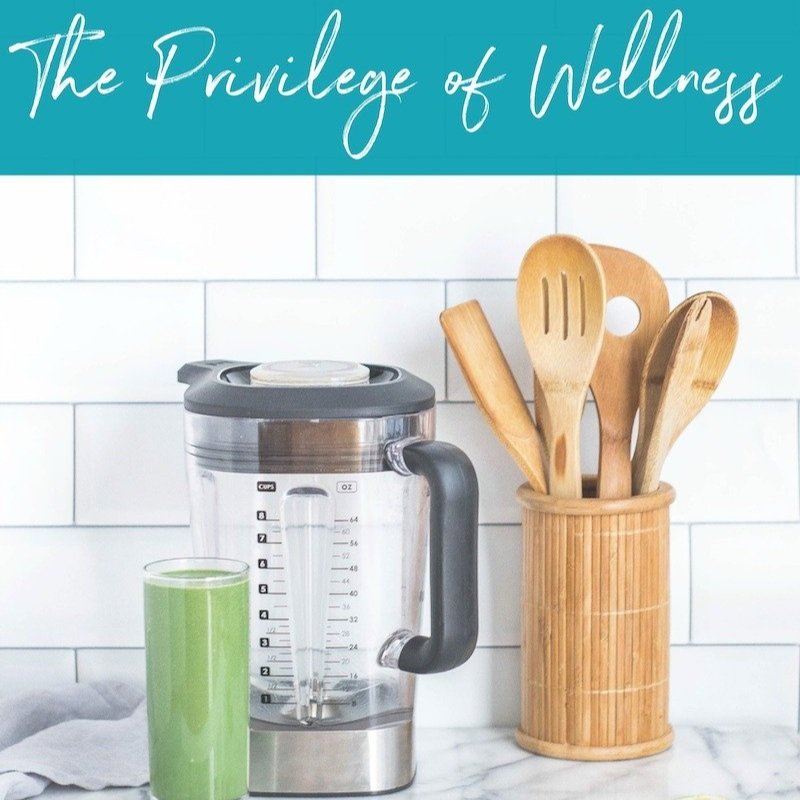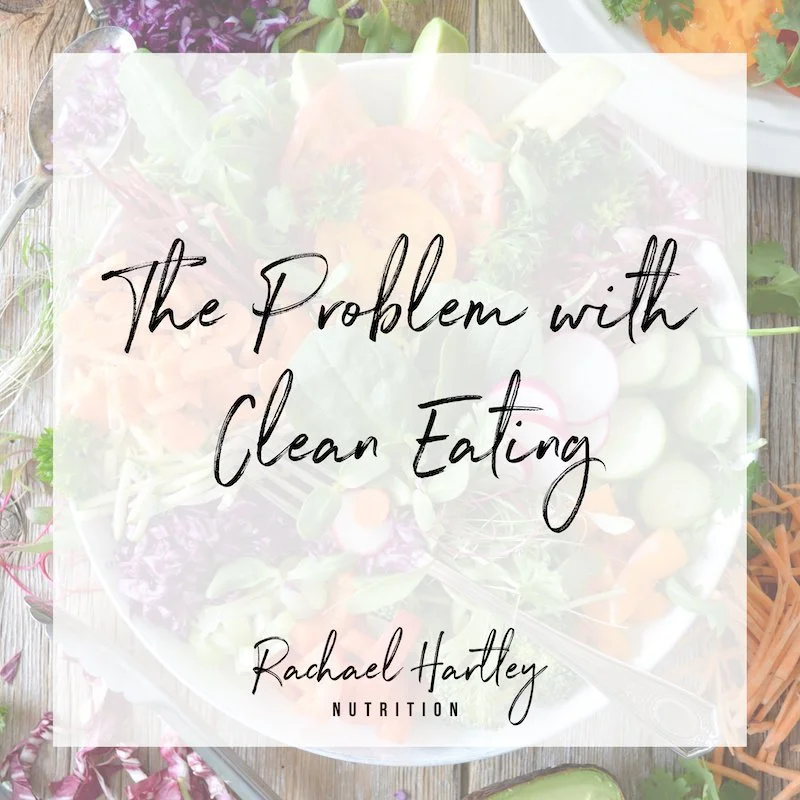Problems with the Dirty Dozen
Scared to eat conventional produce after reading about the Dirty Dozen? You’re not alone. The Environmental Working Group’s annual list of fruits and vegetables with the highest and lowest amounts of pesticide is shared in a way that breeds fear and anxiety. Read this post to understand the many problems with the Dirty Dozen.
Today's post is a bit of a mini-rant.
Last week the Environmental Working Group (EWG) released its annual list of the “Dirty Dozen” and “Clean Fifteen”, a list of fruits and vegetables that supposedly have the highest and lowest amounts of pesticides.
As a general principle, I think having information about pesticides and produce is a good thing. I am pro-transparency, and believe consumers should be able to have access to accurate, reliable information about food and other products they purchase, so they are able to make informed decisions.
However, the EWG’s list is not transparency. It’s also not science. It is a (very successful) marketing campaign for the organic food industry.
What’s wrong with organic produce? Absolutely nothing! Now, what’s wrong with the organic food industry? Phew boy. Whether it’s large conventional or large organic agricultural operations, there’s quite a bit of shadiness - perhaps not surprising for any large corporation. But that’s not what this post is about. Unpacking what’s wrong (and right) in the agricultural industry is very much outside my wheelhouse, and it doesn’t help that most of the accessible information out there is extremely biased, one way or another.
What this post is about are the problems with marketing posing as science, the Dirty Dozen, and how it sows fear and anxiety where there doesn’t need to be any.
Problems with the Dirty Dozen
The Dirty Dozen is misleading
Considering the labels of “Dirty Dozen” and “Clean Fifteen,” you might expect there to be a significant difference in the amount of pesticides between organic and conventional for the types of produce on the lists. In reality, peer reviewed research has shown that choosing organic vs. conventional for the Dirty Dozen does not result in any decreased risk for consumers, because there is little to no pesticide residue on conventionally grown produce, including the Dirty Dozen. By setting their testing limits thousands of times lower than the threshold determined safe for daily consumption, the EWG makes it seem as if there are massive differences in organic and conventional, when really very little exists.
Conventional produce is perfectly healthy
When asked about the Dirty Dozen, a factoid I like to share is that most research on the health benefits of fruits and vegetables are done on conventional produce. So when you read headlines about certain fruits and veggies being associated with various health benefits, those studies are almost exclusively looking at conventionally grown produce. We have decades of correlational research showing people who eat more fruits and vegetables generally live longer and healthier lives. This research does not distinguish between organic and conventional produce, and if there was a risk to eating conventional produce, we would not see this association. Just eating produce, no matter what kind, is health promoting.
It’s demonizing and stokes fear
The Dirty Dozen demonizes and creates fear of the foods on the list, and conventional food as a whole. I mean, who would want to eat something labeled as dirty? The Dirty Dozen list creates yet another food rule, on top of all the other anxieties we’ve picked up about food and weight and health from diet culture. The fear it stokes has driven clients I’ve worked with to spend more money than they can afford on groceries, drive to multiple grocery stores seeking out organic versions of the Dirty Dozen, and to avoid dishes they want at restaurants because they’re not sure how the vegetables were grown.
The Dirty Dozen is privileged
For some who have the money and access to purchase organics, the list may seem like no big deal. Who it harms most are low income people, who may not have organic produce available where they shop, nor can they typically afford it. Research has shown messaging around the Dirty Dozen made low-income consumers less likely to purchase any produce in general - both organic and conventional. This makes a lot of sense - if I thought that something was coated in toxins, I wouldn’t want to eat it either! And if I couldn’t afford the supposedly toxin-free version, then too bad. I saw this study in action when I worked at a large medical center with a mostly low-income population. The fears around conventional produce and the Dirty Dozen were real, and not just something that was stirred up in a research study.
It’s a distraction from those who actually are harmed by agricultural chemicals.
Pesticides pose little to no threat to eaters. You know who is harmed by pesticides? Farm workers. But this is rarely talked about, especially because farm workers are some of the most vulnerable people in our society, with little to no power to advocate for safer working conditions. Poor, rural families that tend to live closer to large agricultural operations are also impacted.
If there are any pesticide residues on your fruits and veggies, just give it a good rinse.
If there are any trace amounts of pesticides on fruits and veggies, the FDA says it can be removed with a quick cleaning in fresh water. It’s probably a smart thing to do anyhow for germ related reasons. Here’s some tips on how to clean your fruits and veggies.
So What Kind of Produce Should I Buy?
Well, for starters, produce that looks fresh, isn’t wilted, wrinkled or moldy…kidding! I don’t think that’s what you were asking about :)
When it comes to what produce you “should,” buy, that’s very much a personal decision, and I don’t think there’s a right or wrong. But I will share some thoughts to help you make an informed decision.
If your concern is nutrition, research shows there doesn’t seem to be any significant health benefits to choosing organic over conventional produce. While there are some correlational studies associating higher intakes of organics with lower incidence of infertility, birth defects, allergic reactions, and non-Hodgkins lymphoma, I find these results to be dubious. Consider what else people who eat more organic foods tend to have (hint: $$$$), and it’s easy to see how pooling together the data from thousands of people eating more organic food, you might stumble across some statistically significant associations. Is it possible there are health benefits to eating organic produce? Sure. But considering the research thus far that’s shown no benefit, or some small statistical benefit, my thought is if there are health benefits associated with organics, it’s pretty minimal otherwise we would see it in the data.
If your concern is the environment, from what I understand there is likely a benefit to choosing organics. However, produce being labeled organic doesn’t necessarily mean it was grown in an environmentally responsible way, and there are many big and small farms that grow produce conventionally that use safe, sustainable growing practices. Unfortunately, the organic label on produce has more to do with marketing that sustainability practices.
If we lived in an ideal world, the government would support small farms and sustainable practices in larger operations, and we would be able to go to the grocery store and feel confident in the agricultural and labor practices in the farms where we send our money. We don’t live in an ideal world. And while I think it’s fantastic for those who have more time and finances to purchase from local farms they trust, it’s just not always realistic for most people. Nor is it a moral imperative, or mean you are a bad person if you’re not able to hit up the farmers market multiple times a week. That’s simply not accessible to the vast majority of people in the system we live in. And if that’s what you choose to do, know that there is very likely no health benefit to doing so. It’s still lovely and a great way to vote with your dollar. It just won’t grant you immortality.
So what do I do? Personally, even as someone with some degree of financial privilege, organic produce is often too expensive. Unless only organic is available for what I need or there’s just a small price difference, I typically get conventional produce. However, I do try to do other things that support farms with ethical practices, like joining a local CSA (now that we are settled in Boston, looking for one for the spring!), going to farmers markets some weekends we are in town, and shopping at a local grocery store vs. a big chain.
If this is an issue that’s important to you, we have to get beyond things like the Dirty Dozen, which focus (inaccurately) on how things affect us individually, and instead think about systems. That means voting for people that support environmentally-friendly policies and industry transparency, and continuing to advocate when they’re in office. It might also mean getting involved on a community level, like helping out at a community or urban garden.
And if your interest in the Dirty Dozen is about your health, you’ll be happy to know that just regularly eating fruit and vegetables (as part of a calorically adequate diet) - both conventional and organic - is a great way to support your health.
There’s a plethora of confusing, misleading and conflicting information out there about basic nutrition, and it can make feeding yourself a big stress! If you want to learn clear away the noise so you can feed yourself with confidence, we work with clients virtually and out of our Columbia, SC office. Learn more about our practice philosophy and nutrition services to see if we’re a good fit to work together.
This post on the problems with the dirty dozen was originally published April 2018. It has been updated to give you the best possible content.






